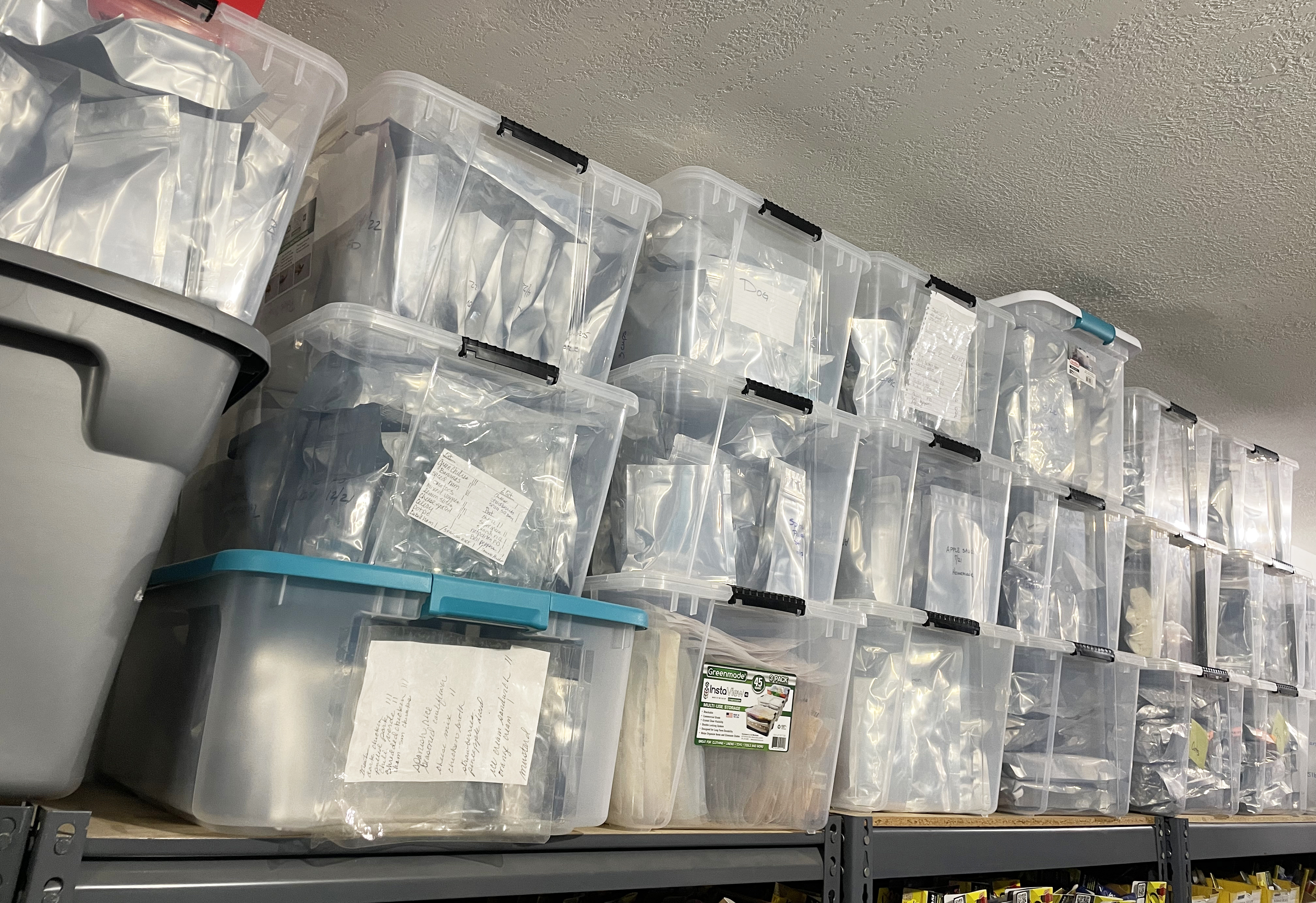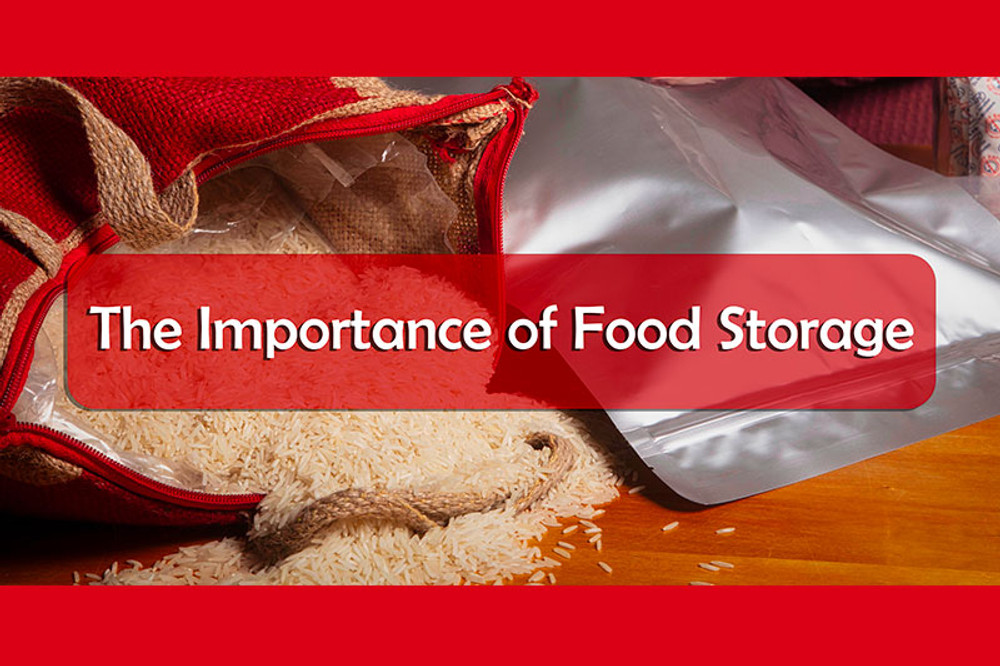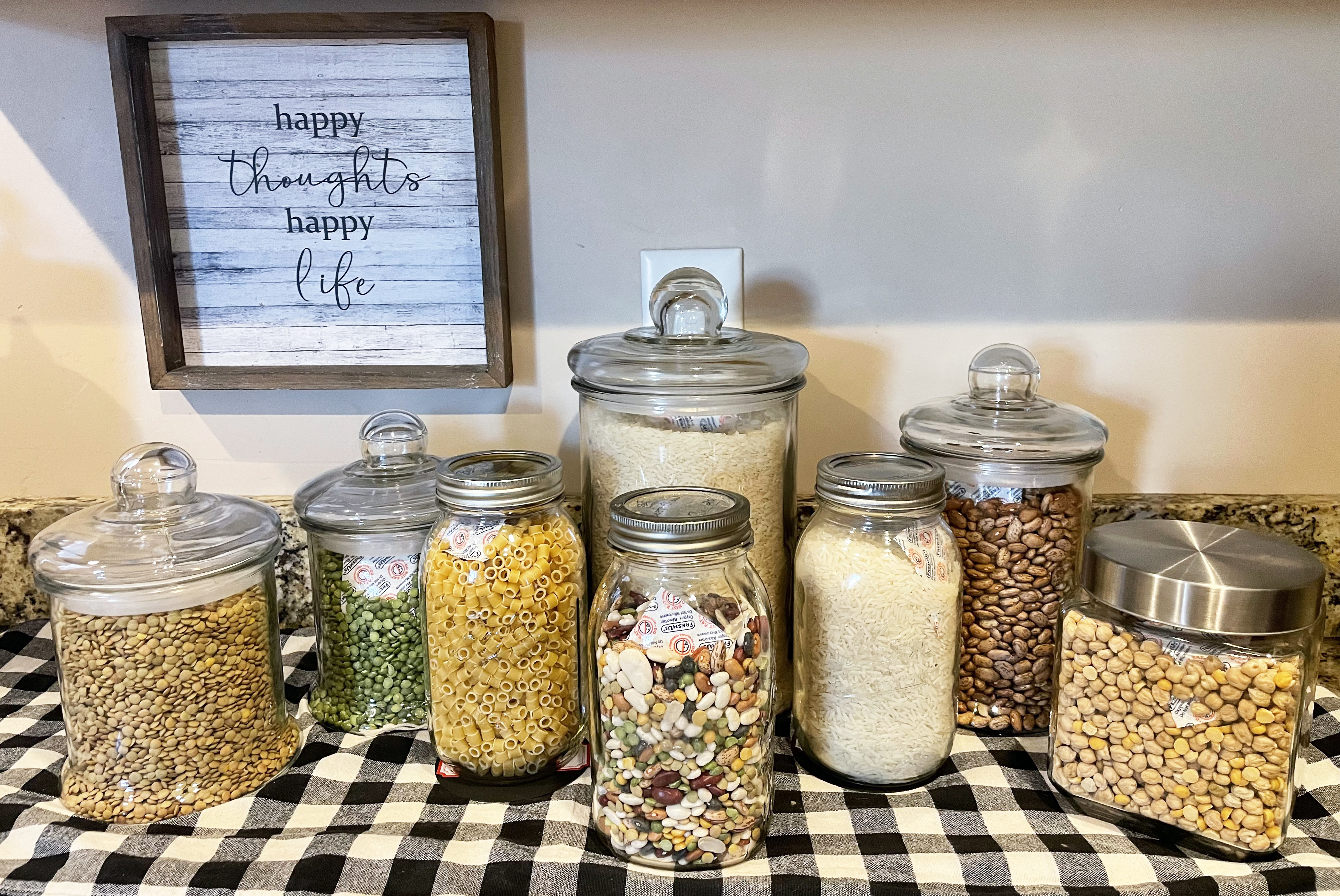The Importance of Food Storage
Posted by Ola Griffin on Dec 2nd 2022
It can often feel overwhelming when you first get started creating a food storage supply for your family. Customers often tell me that they bought food and never did anything with it; then they are fearful that the food has expired and spoiled. This fear is perfectly normal, food is life saving security. There are more reasons to store other than for a Zombie Apocalypse. What if you lose your job and need to rely on unemployment for rent or mortgage? Having food put away for a rainy day, ensures you do not have to choose between food or roof over your family. This is food security.
I, personally, in July 2009 had to rely on my food storage for almost 4 months for my family and I. After a bad accident, my state disability was only $1100.00 and my rent as a single mom was $1150.00. As you can see, that did not leave me any money for other needs. If I did not have my food storage I would have had to choose between paying rent or feeding my family; since I had food put away for an emergency, I did not have to choose. Having my food storage supply was such a blessing for my family. And having food security will be a blessing for your family.
Having a 3-month food storage is recommended by the US Government. A medical or family emergency, a natural disaster, or other unforeseen emergencies or situations are great reasons to put away food for a rainy day.
Here are a few things to consider when you are getting started with storing food for your family.
- Size of your family
- How much food do you want to store? How many weeks, months or year/years do you want stored for your family?
- Where or how are you storing?
- Are there special needs like allergies, diabetes, religious needs, other medical issues?
- The young and old
- Your pets or other animals in your care
HOW TO CALCULATE YOUR FOOD STORAGE NEEDS FOR YOUR FAMILY
Taking into consideration the different sizes of families and needs will vary greatly. A lot of people think that just putting away beans and rice is good enough. I think differently. Storing beans and rice are great to get started, but have you ever had to cook beans from scratch? If you haven’t then please cook up a pot of beans, practice makes perfect. Learning now ensures you have those skills when you need them. Beans and rice are some of the top things to store, but there are plenty of other things you should be storing.
But it is best to figure out what quantities you are wanting to store. How many kids and adults are you storing for? How do you calculate your food storage needs?
Here is a great tool to help to calculate those numbers:
PackFreshUSA® Food-Storage Calculator
You can put in the quantities of family numbers: adult and kids and it will calculate what your family needs for a year supply based on minimal needs. You can choose the best option of foods for you and your family.
It is broken down into GRAINS, LEGUMES, FATS & OILS, MILK & DAIRY, SUGARS, DRINKS, COOKING ESSENTIALS, WATER, FRUITS, and VEGETABLES.
- Grains include wheat, flour, corn meal, oats, rice, and pasta.
- Legumes include dry beans, lima beans, soy beans, split peas, lentils, and dry soup mixes. I also like to store dehydrated cooked beans.
- Fats & oils include shortenings, vegetable oil, mayonnaise, salad dressings, and peanut butter.
- Milk & dairy include dry milk, evaporated milk and other dairy like cheese.
- Sugars are honey, sugar, brown sugar, molasses, corn syrup, jams, and powdered fruit, and flavored gelatin.
- Cooking essentials include baking powder, baking soda, yeast, salt, and vinegar.
- Water includes water storage and ways to purify such as bleach.
- Fruits include fruit juices, fruit mixtures, banana chips, applesauce, and dried fruits (dehydrated or freeze dried). Canned fruits are also great too. You can purchase freeze dried fruits that can be stored for decades.
- Vegetables include corn, peas, green beans, carrots, potatoes, onions, tomatoes and pasta sauces. Again, dehydrated or freeze dried are great ways to store, however, canned options are great to store and rotate.
- Spices are a must, what is spaghetti sauce without garlic, bay leaves, sweet basil, and oregano? So, storing spices adds flavor to food.
- Proteins are not included in this list, but you will get lots of protein from lots of foods, however, storing canned goods like chicken, beef, and tuna are some examples of items you can store.
Here is a list of foods to store for long-term
Learn | PackFreshUSA
STORING YOUR FOOD
So, let’s get started with your
food storage. Keep a record of what you are putting away and don’t be afraid to get items on sale or in bulk. The nice thing about bulk is that you usually get the best price point and you can easily store it in Mylar bags. An oxygen-free environment is the best way to ensure the longest lifespan for your food storage. Storing in a Mylar bag with oxygen absorbers allows the food to be safely free of oxygen, bugs and so much more. You want to store your Mylar in a bin or buckets. Metal is best for rodent proof but much of my storage is in 5-gallon buckets or bins. Storing in cooler, dry, and dark places like a cellar is best, preferably a location that stays at around 70 degrees. I lived in Southern California, so storing in a cellar was not an option, I stored in closets and under beds. Knowing that I would need to rotate my food storage more often since it is stored above 70 degrees.

SPECIAL NEEDS
If you can’t eat wheat because of gluten allergies, select other grains that fit your needs best. Flour can be made from many things, but storing original whole grain is best.
Other medical needs like diabetes, means less grains and more protein.
THE YOUNG AND OLD
If you have young children, then you will need more milk and other needs like baby supplies such as diapers, wipes, etc. If you are caring for your older parents or grandparents, then medicines and other needs will need to be taken into consideration.
PETS
Storing food and supplies for your 4-legged family is a must. If you have other animals like chickens, you will want to add extra feed for them. Other essential items may include: crates/carriers, leashes, copies of shot records, toys and blankets.
SUMMARY
Good planning helps with organization. I keep a binder that has copies of not only recipes, but birth certificate, shots and copies of insurance information. This way I know everything is together and if in need I can easily just grab and go.
Well, I hope this helps get started and please if you have any questions reach out to us at www.PackFreshUSA.com and we are more than happy to answer any questions.
Happy prepping,
Ola Griffin
Long-Term Food Storage Expert
YouTube Creator (14) Pandemic Prepsters - YouTube


